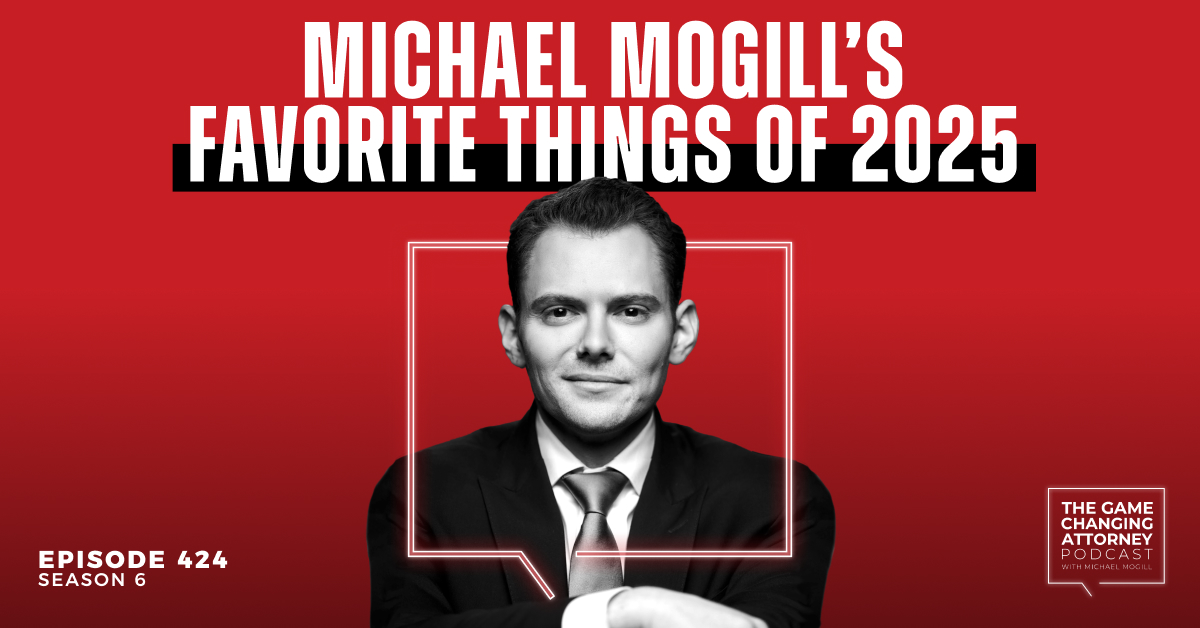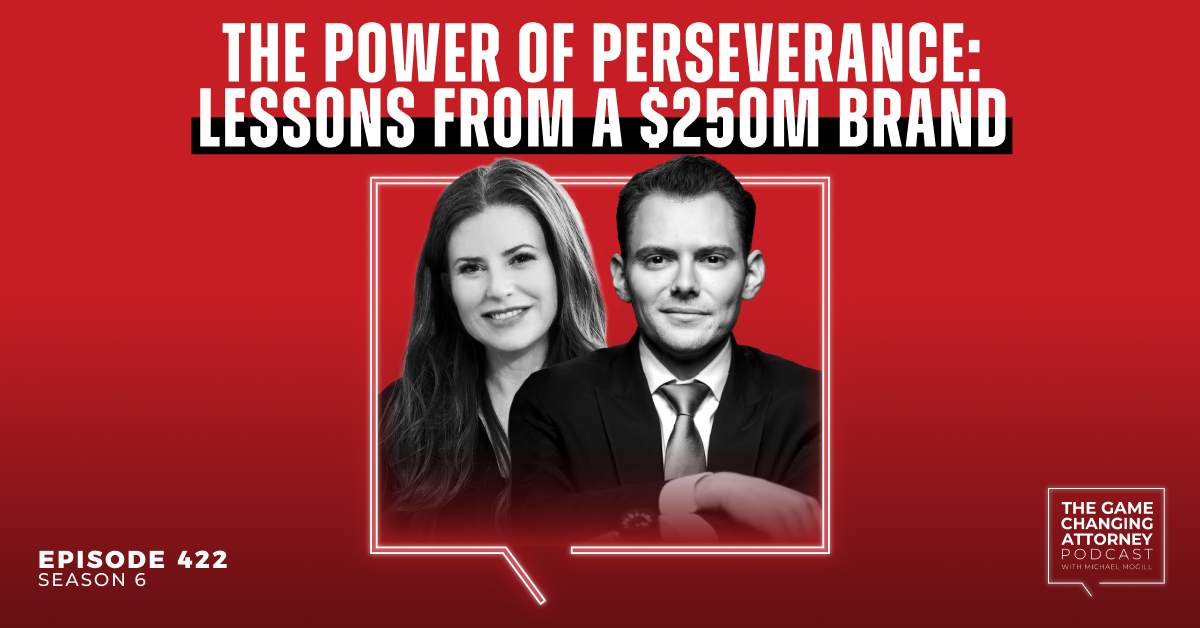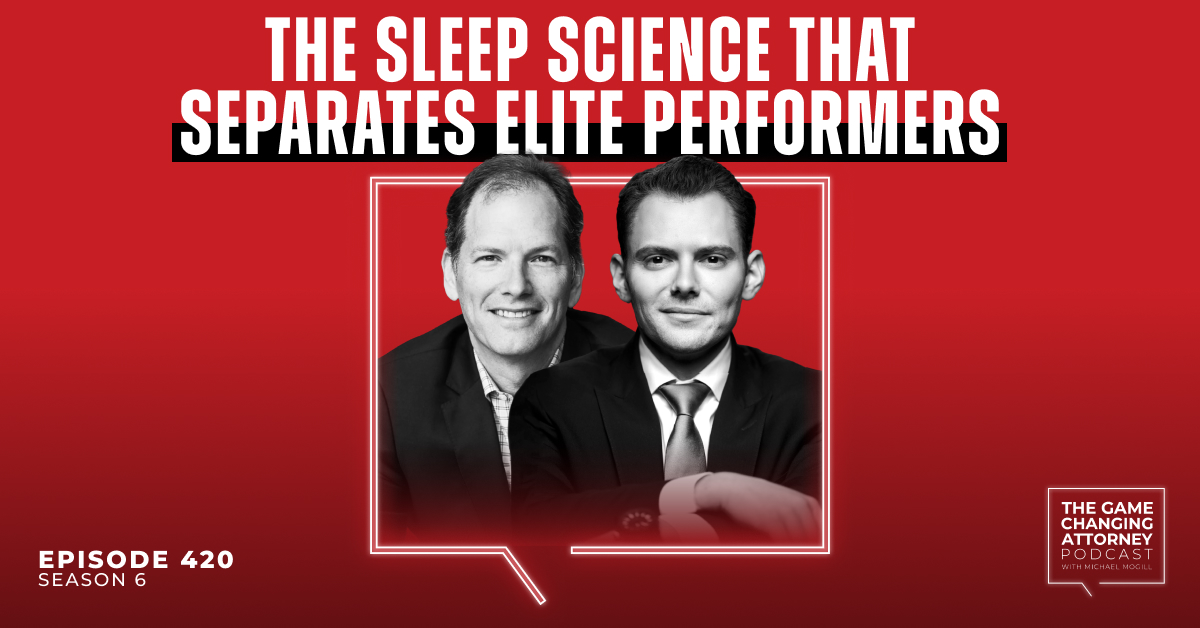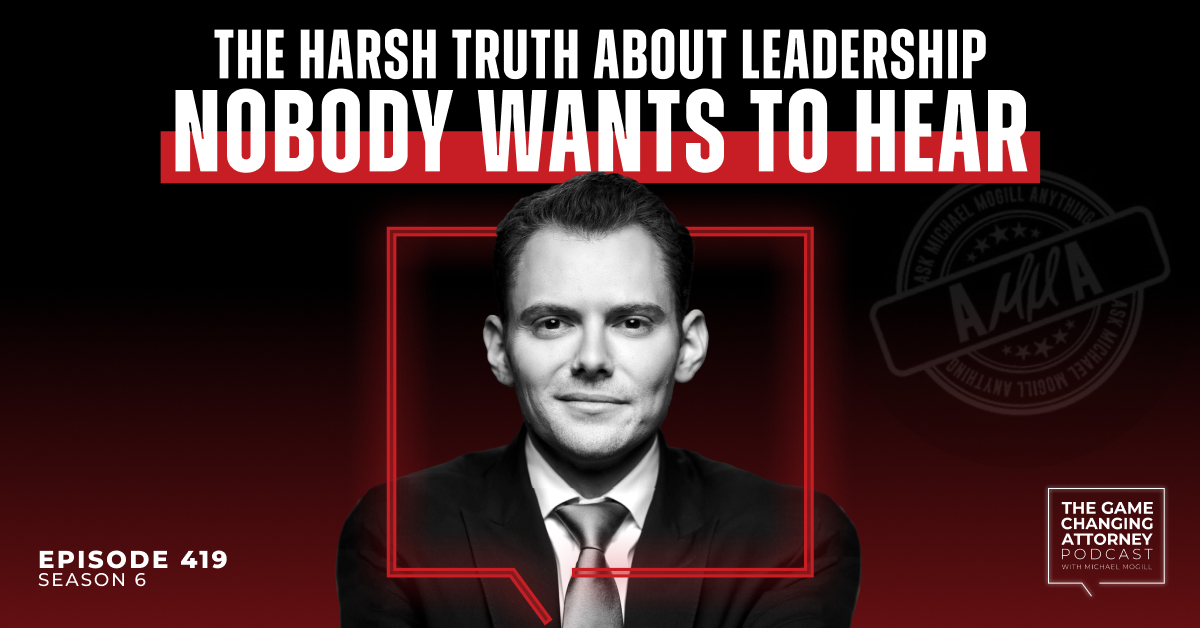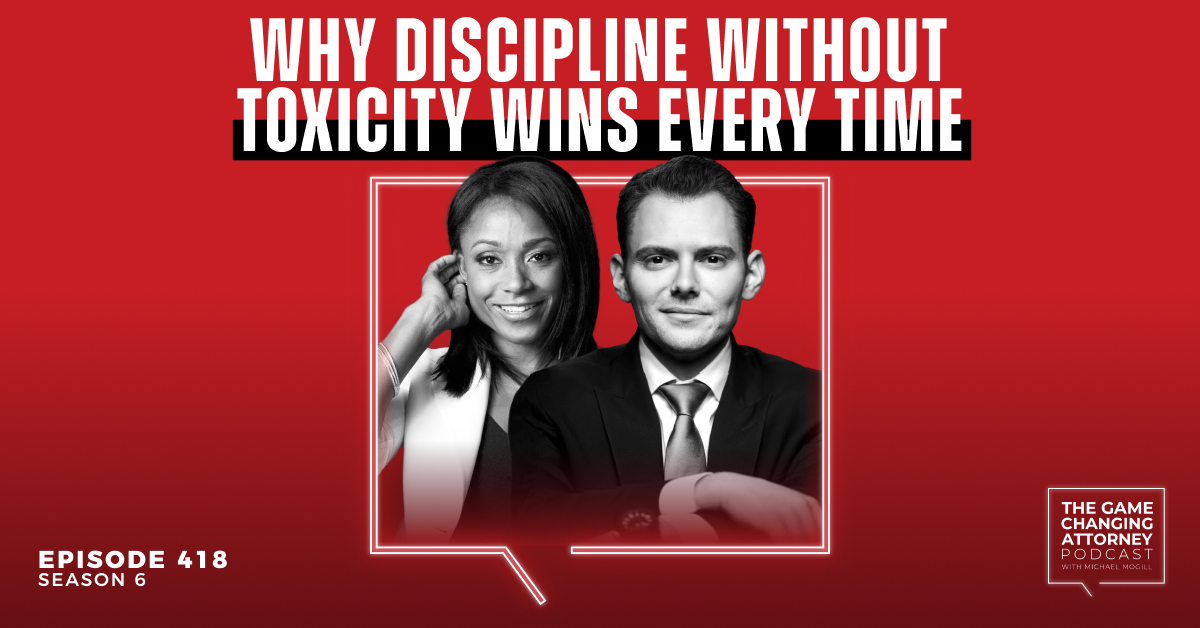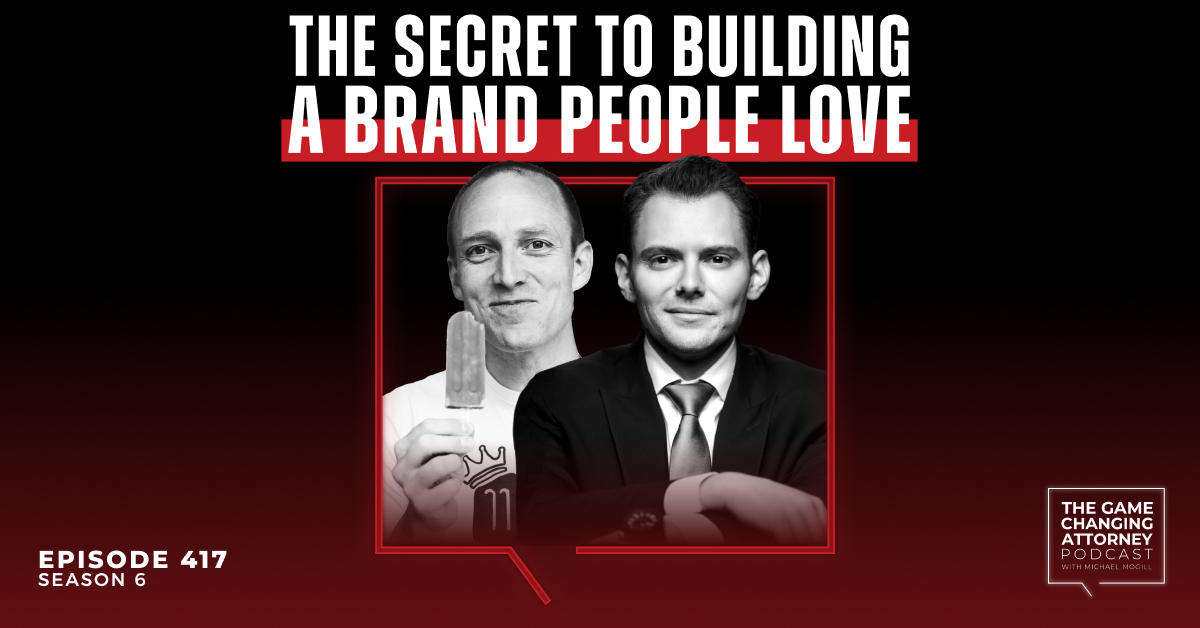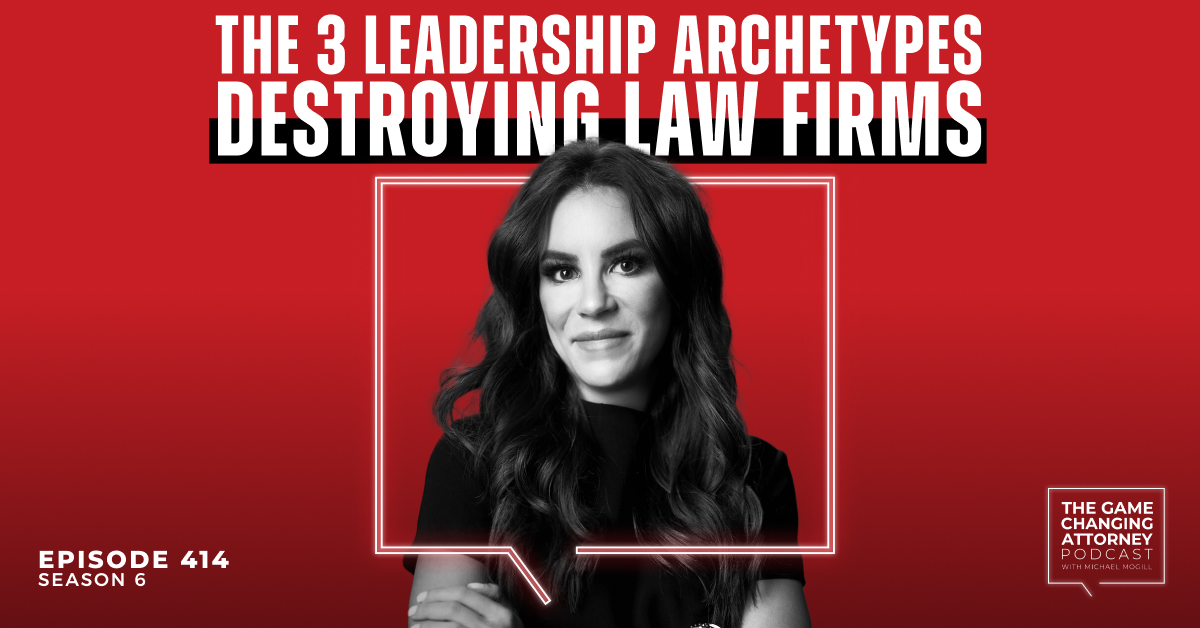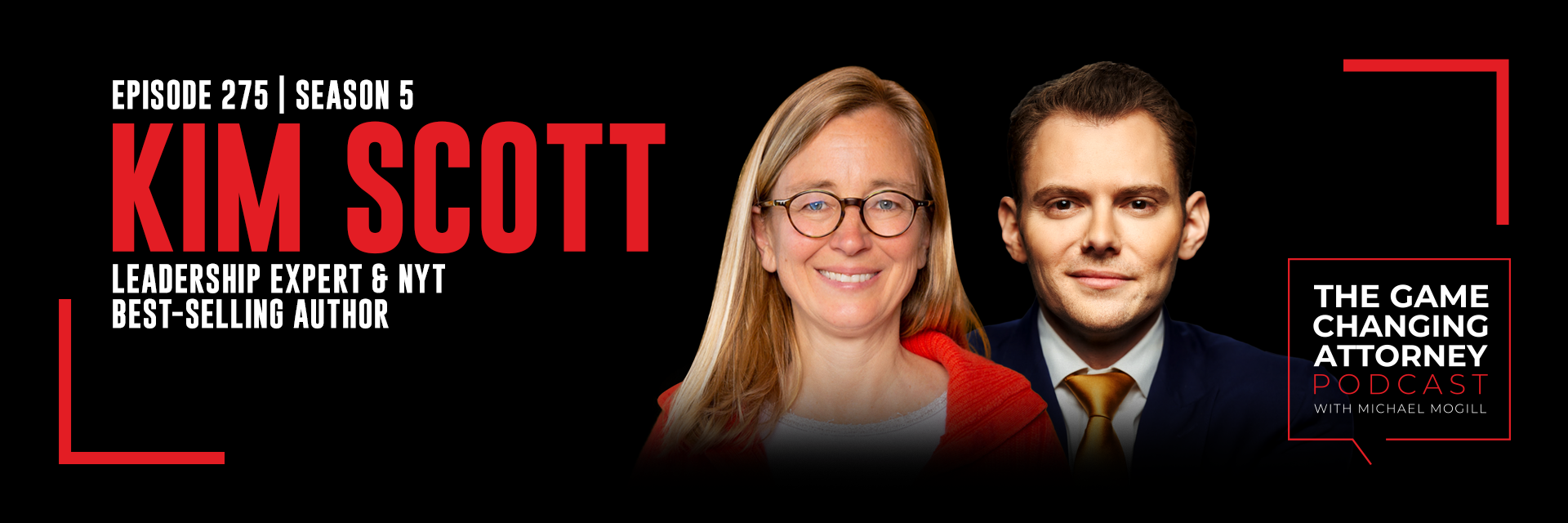
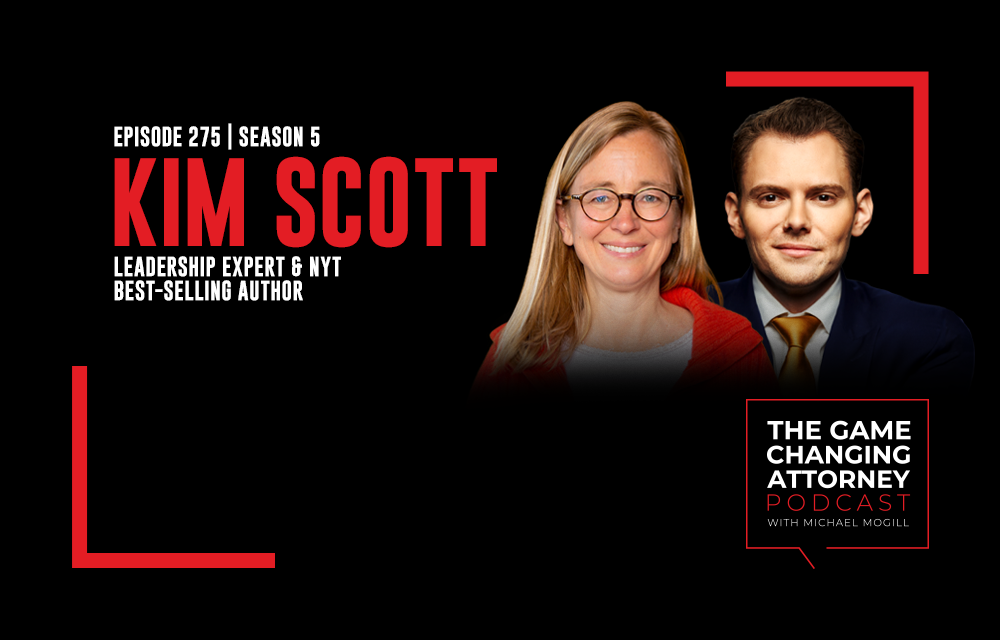
Episode 275 — Kim Scott — The Power of Radical Respect
Are you unknowingly sabotaging your team’s potential and fostering a toxic work environment?
Kim Scott, the brilliant mind behind Radical Candor, is back with a game changing blueprint: Radical Respect. This isn’t just another leadership book — it’s a wake-up call.
If you’re ignoring bias, prejudice, and bullying in your workplace, you’re not just failing as a leader. You’re actively harming your team’s performance and innovation.
In this episode of The Game Changing Attorney Podcast, Kim joins Michael Mogill and shares:
- How to be respectful and respected at your law firm
- The fine line between healthy conflict and unjust bullying
- The winning combination of respecting individuality and facilitating collaboration
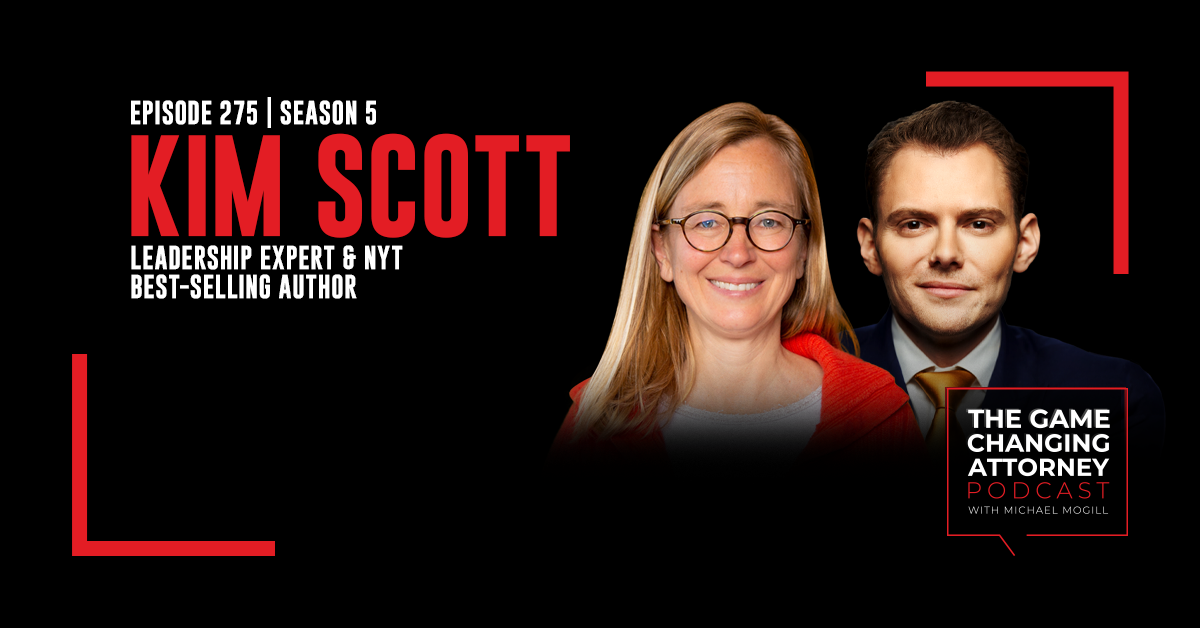
Listen & Subscribe
Show Notes:
Defining Radical Respect. “In many ways, Radical Respect is sort of the prequel to Radical Candor, because Radical Candor is all about caring personally and challenging directly at the same time. You can’t do that if you don’t respect someone. Respect has two definitions. One is something that you earn for a skill, but that’s not what I’m talking about. The kind of respect I’m talking about is unconditional respect — the respect that we all owe each other for our shared humanity. We can disagree with somebody, we can hold them accountable for a mistake, and still respect their humanity. If you don’t have that kind of unconditional respect for someone, you’re not going to care about them, and you’re not going to bother challenging them when they’ve made a mistake.”
Disambiguate disrespect. “There are a million things that get in the way of Radical Respect, but the big ones are bias, prejudice, and bullying. Very often we conflate these three problems as though they’re one problem. I’m sitting here in Silicon Valley, the land of hard problems, and what do you do with a hard problem? You break it down into its component parts. You disambiguate so that you can solve one thing at a time instead of three. If we conflate three problems as one, it makes the problem feel monolithic and insoluble, and the whole purpose of this book is to solve problems. I’m going to offer some overly simple definitions that can help at the moment. Bias is not meaning it. It’s unconscious. Prejudice is meaning it. It’s a very consciously held belief, usually incorporating some kind of unfair and inaccurate stereotype. Bullying is about being mean. It’s not about belief, conscious or unconscious, because it’s just about being mean. Said differently, bias is not meaning it, prejudice is meaning it, and bullying is being mean. When you’re in that moment where something cringy happens, just think quickly to yourself: Did this person mean it? Did they not mean it? Or are they just being mean? That will help you know what to do next.”
Three crucial consequences. “Hopefully you notice, as a leader, bullying when it happens, but often you’re not going to because often people who bully people under them are kissing up to you. It’s important to remember that and to realize that you need to create three different kinds of consequences for bullying. Part of it is becoming aware of it. If you notice it in a meeting, you need to learn how to create conversational consequences. Shut it down in the moment. Saying, ‘We’ve heard a lot from you; I want to hear from everyone else in the room,’ is a simple thing to do. The second kind of consequences that we have are compensation consequences. You want to make sure that you do a 360 review because you may not have noticed the bully and/or that a person indulges in bullying behavior. If you notice in the 360 process that one person bullies another, it’s really important that you don’t give them good ratings or bonuses. In fact, at one tech company where I worked, they gave ratings to people in their 360 process on results, innovation, and teamwork. If you got a bad rating on teamwork, you got a bad rating overall. It’s really important to take it very seriously in your rating system and in your bonus system. Last but not least, there have to be career consequences. I think too often a leader ignores bullying behavior and in fact promotes that bully. There is a moment in almost every team’s history where the a**holes begin to win. That is the moment when the culture begins to lose. You want to make sure that you’re not promoting someone who bullies others and that instead you’re giving that person feedback and letting them know that that kind of behavior has consequences. Not only will it prevent them from ever getting promoted, but they’ll get fired if they continue to treat their peers that way. Bob Sutton, who’s written some great books on leadership, did research and found that the moment that you eliminate someone on a team who bullies others or is a jerk to their peers, the performance of the team improves. Sometimes what happens is leaders are very reluctant to get rid of this bully because they’re doing something essential or feels essential but just remember: it’s better to have a hole than an a**hole on your team.”
Conflict vs. bullying. “Conflict is normal and it needs to be embraced. We’ve got to have conflict, and we have to resolve conflict in a way that is respectful. In fact, I would argue that ignoring conflict is actually disrespectful. Bullying is not about disagreeing with someone. Bullying is repeated action, and when you get feedback that it is harming this person, you ignore the feedback. In other words, if I disagree with you about something, and I tell you and you say, ‘The way you said that made it hard for me to take any action,’ I need to adjust the way I’m talking. I don’t need to adjust my opinion. However, me being authentic and bringing my authentic self to work does not mean that I get to ignore the impact that my authentic self has on you. If we go back to Radical Candor, I don’t need to back off on ‘challenge directly,’ but when I get feedback that I’ve bullied you, I do need to move up on ‘care personally.’”
The ROI on speaking up. “Part of the reason why we default to silence is that we’re acutely aware of the risks of speaking up and we’re less acutely aware of the risks of remaining silent. One thing that is useful to do is, in your mind, do a quick ROI on the value of speaking up, because if you remain silent, if you default to silence every single time, you lose your sense of agency. You may start to feel helpless in the face of these disrespectful attitudes and behaviors. If you’re the one being spoken up to, you can do the same ROI process in your head on the value of accepting and applying that feedback. For example, someone had privately pointed out that I used the word ‘crazy’ inappropriately on Twitter. They said I was wrong for using this word because it’s harmful to people that struggle with mental illness. It was a sloppy use of language. Sure, it could be argued that they were being too sensitive, but my colleague Russ Laraway told me to run the ROI. What would it cost me to change my language? Almost nothing besides a little bit of attention. What would I benefit from changing my language? Creating an environment where I can work better with a bigger number of people. That’s a good way to think about the value of speaking up, whether you’re the upstander or if it’s happening to you.”
Conformity and coercion dynamics. “We intend to create organizations that optimize for collaboration, not coercion. We know that coercive, authoritarian, dictatorial organizations do not innovate. They don’t get the best out of people, so we want to optimize for collaboration. We don’t want dominant hierarchies. We want collaborative hierarchies. We also expect that other people will respect our individuality when we go into work. I think the vast majority of us think of ourselves as people who respect the individuality of others, but that’s often not really the case. The most common thing that happens is what happens in the upper left-hand quadrant, where we do have this nice collaborative environment but we do start to demand conformity. I call that ‘oblivious exclusion.’ You want to make sure that you’re quantifying bias in terms of who you’re inviting to interview, who you’re extending offers to, how much you pay, who you’re promoting, who gets mentored, so on and so forth. The worst thing that happens is the bottom left-hand quadrant, where you are coercive and you demand conformity. This is what I call ‘brutal ineffectiveness’ or ‘brutal incompetence.’ This is like Harvey Weinstein territory, but it doesn’t only happen in such extreme examples. I would say my first work experience was in that bottom left-hand quadrant. Not only did it hurt me, but it hurt my ability to help the company. When I got my next job where I wasn’t treated so badly, I created hundreds of millions of dollars of value for the company. It’s important to recognize when you’re in a brutally ineffective work environment, you cannot do your best work, and for someone to expect you to is just ridiculous.”
What does being a game changer mean to you? “Being a game changer means not willing to play the game that you find yourself in, but to play a better game that’s going to have a better outcome for you and the people around you.”
- Radical Candor by Kim Scott
- Episode #25 of The Game Changing Attorney Podcast
- Bob Sutton
- Russ Laraway
- Thinking Fast and Slow by Daniel Kahneman
- The Radical Respect Podcast
- Follow Kim on LinkedIn
- Radical Respect by Kim Scott
Connect with Michael
- Text directly at 404-531-7691
